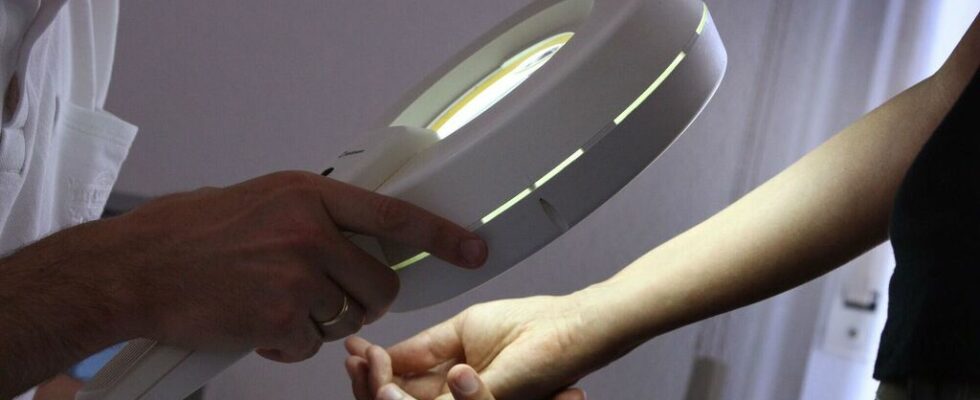Cancer has a treacherous quality: it usually only causes symptoms when the tumor has already grown rapidly, perhaps even spread to other organs. It’s good that there are tests that allow doctors to detect certain types of cancer earlier.
The Federal Ministry of Health provides an overview on its website of which early detection examinations are covered by statutory health insurance companies.
First of all: every early detection appointment also includes a targeted medical history. This means that the doctor asks about changes or complaints that affect the respective organ.
cervical cancer
The Pap smear, which many women are familiar with, is part of the early detection of cervical cancer. Women between the ages of 20 and 34 can have this genital examination every year. During the Pap smear, material is taken from the cervix and examined for cell changes. A manual examination is also part of the appointment.
The cervical smear that the doctor takes is not only examined for cell changes, but also for genital infection with human papilloma viruses (HPV).
For women aged 35 and over, health insurance covers the early detection of cervical cancer every three years.
Breast cancer
Women aged 30 and over can have an annual examination for the early detection of breast cancer. The gynecologist will examine the breast and the lymph nodes in the body region and provide instructions on how the patient can regularly examine themselves at home.
Women aged 50 to 69 can have a mammography screening every two years. The main part is an X-ray of both breasts. Special feature: Invitations are sent out for this early detection examination, usually suggesting an appointment. As with all early detection examinations, participation is voluntary.
Skin cancer
Men and women aged 35 and over are entitled to a skin cancer screening every two years. A dermatologist examines the skin all over the body for changes. Qualified general practitioners can also carry out the examination.
Prostate cancer
Men aged 45 and over are entitled to a genital and prostate examination every year. Part of the appointment is a palpation of the prostate from the rectum. Lymph nodes in this region of the body are also palpated.
Colon cancer
Men are entitled to a colonoscopy for early detection of cancer from the age of 50 and women from the age of 55. If the result is normal, a second colonoscopy can be done after at least ten years. If abnormalities are found, a check-up will be done sooner.
- Test for hidden blood in the stool
A second way to detect colon cancer early: tests for hidden blood in the stool. Women are entitled to an annual test from the age of 50. Men over the age of 50 can choose between an annual test or two colonoscopies at least ten years apart.
From the age of 55, both men and women can choose between tests for blood in the stool every two years or two colonoscopies at least ten years apart.
Information from the Federal Ministry of Health
© dpa-infocom, dpa:240206-99-891045/2

